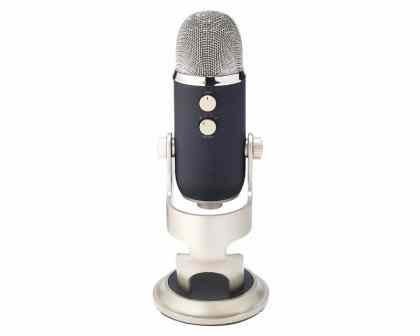Blue Microphones Yeti Pro review
Blue's Yeti Pro is neither the most attractive nor the most compact microphone in the world, but that doesn't matter when it comes to this condenser mic's quality or pedigree. We reviewed the original Yeti - which costs around £100 less - last year. It was one of professional audio specialist Blue's first entries into the world of consumer audio recording, and it went down a storm.
Like the Yeti, the Yeti Pro has three 14mm tuned condenser capsules at its core. It's not terribly well suited to working in noisy environments - we prefer dynamic mics for stage work as they don’t pick up so much ambient noise - but the Yeti Pro's sensitivity and honest reproduction of all the acoustic characteristics of an instrument or voice can't be faulted. It captured all the warmth and reverberation of our acoustic guitar accurately, and the full range of vocal harmonics that are often lost by cheap microphones.

The mic has several recording modes. Most people will be using cardioid mode, which is intended to pick up mono-directional audio from directly in front of the mic. The further away a sound is, the quieter it is. Stereo mode records with the most realistic positional audio of any of the settings, while omnidirectional mode captures everything - perfect if you're recording a conference or a group of musicians. Finally, bi-directional mode focuses the recording towards the front and rear of the mic - it's intended to record conversations or duets. We tested the Yeti Pro using a PC that makes lots of fan noise. This was audible even in recordings made with the mic set to cardioid, but it was easy to filter out the noise in audio-editing software.
Of course, while the Yeti Pro isn't in the same price league as Blue's commercial microphones, it's a long way from being cheap. At £200, you're not paying for a higher-quality mic than the original Yeti. You're instead paying for added features. The Pro has a different integrated USB sound card, which means that you can record from it at resolutions and bit rates of up to 192kHz at 24-bit, rather than the Yeti's more modest maximum 48kHz at 16-bit.